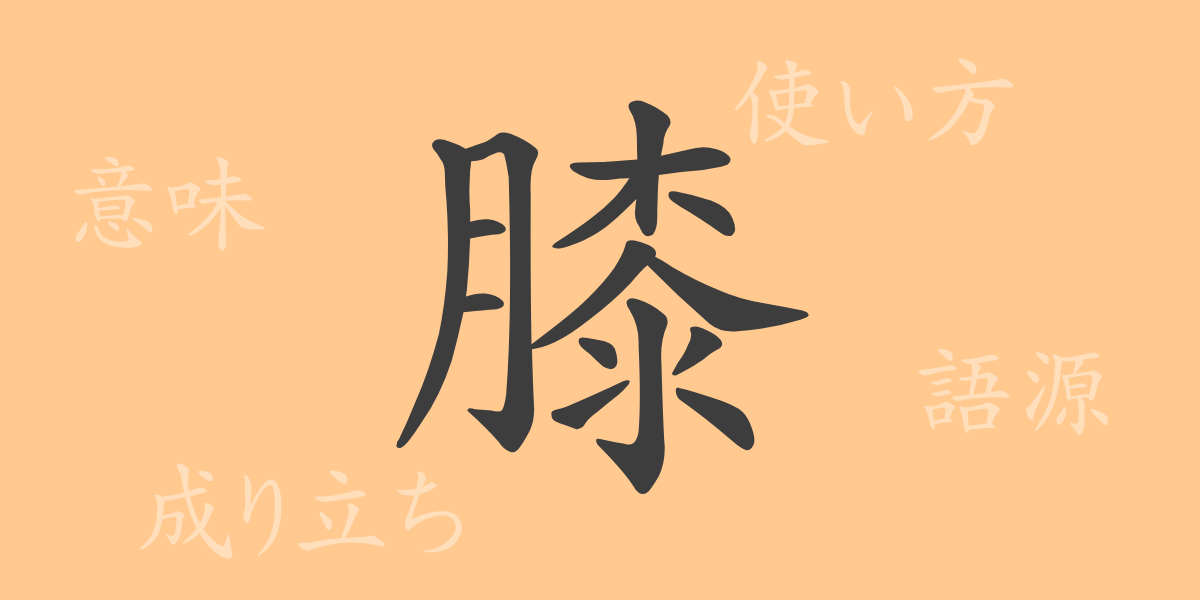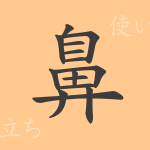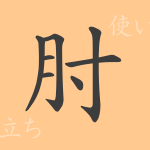Japanese culture and language often carry deep meanings and historical significance. One such example is the kanji “膝 (hiza),” frequently used in daily life. This article delves into the origins, meanings, uses, and idiomatic expressions involving the kanji “膝 (hiza).” It will help you appreciate the profound depth of the Japanese language.
Origins of 膝 (hiza)
The kanji “膝 (hiza)” originated in ancient China as a term referring to a part of the human body. Initially related to the character “肌 (hada),” which means skin, “膝 (hiza)” evolved to signify the joint underneath the skin. This kanji combines the meat radical with the character “桼 (shitsu),” creating a structure that evokes the skin covering the soft parts of a joint.
Meaning and Usage of 膝 (hiza)
“膝 (hiza)” refers to the joint connecting the thigh and shin in humans and animals. In Japanese, it is used not only to denote this body part but also in metaphorical expressions and idioms. For instance, “膝を交える (hiza o majieru)” describes an intimate conversation or discussion. Meanwhile, “膝が弱い (hiza ga yowai)” is used to express instability in the knees due to age or illness.
Reading, Stroke Count, and Radical of 膝 (hiza)
The kanji “膝 (hiza)” has several readings, primarily as follows:
- Readings: On-yomi (音読み) as “シツ (shitsu),” Kun-yomi (訓読み) as “ひざ (hiza)”
- Stroke count: 15 strokes in total
- Radical: Meat radical (肉偏, にくづき, nikuzuki)
Idioms, Expressions, and Proverbs Involving 膝 (hiza) and Their Meanings
There are various idioms, expressions, and proverbs that include “膝 (hiza).” Here are a few examples along with their meanings:
- 膝を交える (hiza o majieru) – To have a friendly conversation on equal terms.
- 膝を打つ (hiza o utsu) – The act of lightly tapping one’s knee when impressed or surprised, or an expression of such emotions.
- 膝元 (hizamoto) – Literally means “near the knee,” but metaphorically refers to one’s immediate vicinity or close at hand.
- 膝下 (hizashita) – Refers to one’s children or grandchildren, essentially the next generations.
Summary of 膝 (hiza)
Even a single kanji like “膝 (hiza)” encompasses a rich history and cultural significance. Used in various forms within the Japanese language, “膝 (hiza)” enriches people’s lives and emotions through words. We hope this exploration offers you an opportunity to rediscover the meanings behind the words you use daily.

























